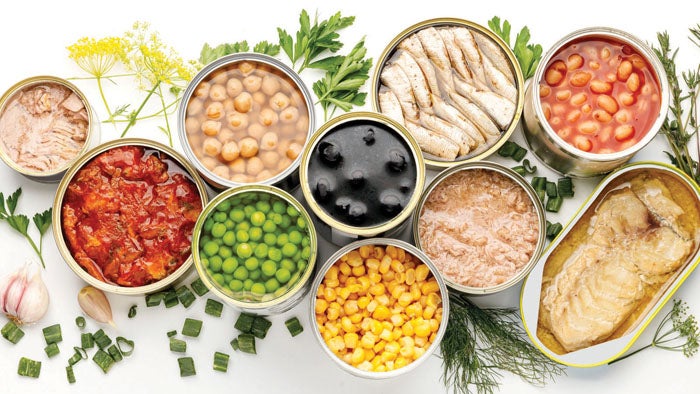Toi Degree: Are canned foods healthy?
Published 12:00 am Saturday, February 17, 2024

- An assortment of processed food with long shelf life, canned fish and vegetables.
By Toi Degree
N.C. Cooperative Extension
February is Canned Food Month, but you can celebrate the convenience and affordability of canned food all year ‘round. I’m sure the question, “are canned foods healthy” will arise. And if so, here is your answer. Yes, canned foods can be just as nutritious as fresh and frozen foods because canning preserves many nutrients. The amount of minerals, fat-soluble vitamins, protein, fat and carbohydrates remain relatively unchanged by the process of canning.
So, you can keep your pantry stocked with a variety of nutritious canned foods such as canned “no-salt-added” black beans, chickpeas (garbanzo beans), diced tomatoes and more. Canned fruits and vegetables are great to incorporate into your healthy lifestyle. Some canned fruits have a lot of added sugars or syrups, so choose fruits packed in 100 percent juice or water. Some canned vegetables contain added salt, so choose the “no-salt-added” option when available. If that is not an option, you can simply drain and rinse regular salted canned vegetables to remove about 30 percent of the sodium.
When stocking your kitchen, it is important to have the things that you need to make any meal or substitution. Planning is essential and makes meal preparation a lot easier when you have the right staples and basic supplies on hand — foods that your family likes and use often. In the cupboard, these items might be pasta, dry beans, or canned vegetables that keep for a long time. In the refrigerator and freezer, these foods are ones you use often to make meals.
Use the list below to get your kitchen stocked with healthy staples. With the right basics on hand, you’ll be ready to whip up a family favorite or throw together a meal at a moment’s notice. These staples will also keep you eating healthy and out of the fast-food drive-thru.
Canned and dry goods
- Beans — canned or dried
- Crackers
- Crunchy cereal
- Macaroni/pasta
- Miscellaneous fruits and vegetables
- Mushrooms
- Oats
- Peanut butter
- Pizza/pasta sauce
- Rice
- Tomatoes — diced, whole, juice, sauce, stewed
- Tuna
- Vegetable broth
Having a well-stocked pantry has several benefits:
1. Save money.
Shopping to fill the pantry allows you to purchase foods when they are on sale or at rock-bottom prices and to stock up until the next sale.
Since food usually gets marked down in rotations, buy enough or as much as you can to last until the next sale. There’s no need to overstock!
2. Eliminate multiple runs to the grocery store.
Ideally, running to the grocery store more than necessary is kept to a minimum.
3. Save time.
This is like the previous one. When you shop to keep items replenished and on hand, there’s some assurance you usually have something to cook for a meal.
A well-stocked pantry gives you wiggle room for the days and weeks when illness, a busy schedule or something else throws your routine off.
It is important to remember that building a reasonable stockpile for your family takes time. It will mean each time you shop, purchasing extra of whatever items you can afford and wait a little to use them.
Slowly, staples fill your pantry and what your family usually eats can be made without darting to the store (except for some fresh items).
Toi N. Degree is associate family and consumer education agent with North Carolina Cooperative Extension. Contact her at 704-216-8970 or toi_degree@ncsu.edu.



